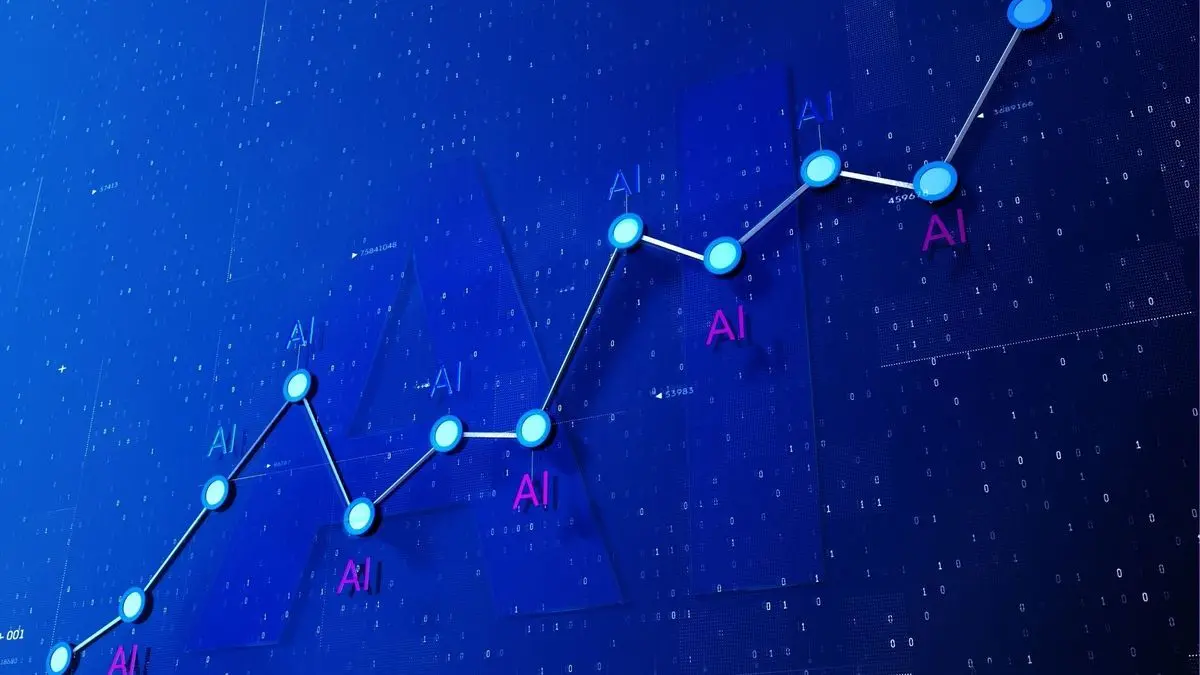Over 40% of Japanese Companies Lack Plans for AI Adoption, Survey Reveals
4 Sources
4 Sources
[1]
More than 40% of Japanese companies have no plan to make use of AI
TOKYO (Reuters) - Nearly a quarter of Japanese companies have adopted artificial intelligence (AI) in their businesses, while more than 40% have no plan to make use of the cutting-edge technology, a Reuters survey showed on Thursday. The survey, conducted for Reuters by Nikkei Research, pitched a range of questions to 506 companies over July 3-12 with roughly 250 firms responding, on condition of anonymity. About 24% of respondents said they have already introduced AI in their businesses and 35% are planning to do so, while the remaining 41% have no such plans, illustrating varying degrees of embracing the technological innovation in corporate Japan. Asked for objectives when adopting AI in a question allowing multiple answers, 60% of respondents said they were trying to cope with a shortage of workers, while 53% aimed to cut labour costs and 36% cited acceleration in research and development. As for hurdles to introduction, a manager at a transportation company cited "anxiety among employees over possible headcount reduction". Other obstacles include a lack of technological expertise, substantial capital expenditure and concern about reliability, the survey showed. The poll also showed 15% of respondents have experienced cyberattacks over the past year and 9% had business partners that suffered cyberattacks during the same period. Asked about damage, 23% of those that suffered cyberattacks themselves or had business partners that were targets said business was temporarily halted, and 4% said they suffered information leak. On steps to enhance cybersecurity, 47% of respondents said they were outsourcing defence whereas 38% said they had in-house specialists. Cyberattack victims in recent months included high-profile publisher Kadokawa whose case prompted the government to work towards strengthening cybersecurity measures. The survey also showed half of firms support changing a law stipulating that spouses must use the same surname. Women take their husband's in more than 9 out of 10 marriages, a practice opponents said takes away part of a woman's identity and burdens them with the masses of paperwork needed to make the change. The issue came under renewed spotlight after the Keidanren business lobby last month asked the government to allow married individuals to keep their surnames. In the survey, 50% of respondents said they supported such legislative change compared with 11% that opposed. "The current system is hurting individuals' - and especially women's - dignity and freedom," a manager at a machinery firm wrote. An official at a steelmaker called change the "natural demand of the times". In opposition, a manager at a non-ferrous metal manufacturer said allowing separate surnames could "weaken family bonds." Asked how a change in the law would affect their business, 14% of respondents said employee morale would be boosted and 10% said it would help hiring activity, while 56% said they expected no impact. (Reporting by Kiyoshi Takenaka; Editing by Christopher Cushing)
[2]
More than 40% of Japanese companies have no plan to make use of AI: Reuters poll
About 24% of respondents said they have already introduced AI in their businesses and 35% are planning to do so, while the remaining 41% have no such plans, illustrating varying degrees of embracing the technological innovation in corporate Japan. Asked for objectives when adopting AI in a question allowing multiple answers, 60% of respondents said they were trying to cope with a shortage of workers, while 53% aimed to cut labour costs and 36% cited acceleration in research and development. As for hurdles to introduction, a manager at a transportation company cited "anxiety among employees over possible headcount reduction". Other obstacles include a lack of technological expertise, substantial capital expenditure and concern about reliability, the survey showed. The poll also showed 15% of respondents have experienced cyberattacks over the past year and 9% had business partners that suffered cyberattacks during the same period. Asked about damage, 23% of those that suffered cyberattacks themselves or had business partners that were targets said business was temporarily halted, and 4% said they suffered information leak. On steps to enhance cybersecurity, 47% of respondents said they were outsourcing defence whereas 38% said they had in-house specialists. Cyberattack victims in recent months included high-profile publisher Kadokawa whose case prompted the government to work towards strengthening cybersecurity measures. The survey also showed half of firms support changing a law stipulating that spouses must use the same surname. Women take their husband's in more than 9 out of 10 marriages, a practice opponents said takes away part of a woman's identity and burdens them with the masses of paperwork needed to make the change. The issue came under renewed spotlight after the Keidanren business lobby last month asked the government to allow married individuals to keep their surnames. In the survey, 50% of respondents said they supported such legislative change compared with 11% that opposed. "The current system is hurting individuals' - and especially women's - dignity and freedom," a manager at a machinery firm wrote. An official at a steelmaker called change the "natural demand of the times". In opposition, a manager at a non-ferrous metal manufacturer said allowing separate surnames could "weaken family bonds." Asked how a change in the law would affect their business, 14% of respondents said employee morale would be boosted and 10% said it would help hiring activity, while 56% said they expected no impact. (Reporting by Kiyoshi Takenaka; Editing by Christopher Cushing)
[3]
More than 40% of Japanese companies have no plan to make use of AI
TOKYO, July 18 (Reuters) - Nearly a quarter of Japanese companies have adopted artificial intelligence (AI) in their businesses, while more than 40% have no plan to make use of the cutting-edge technology, a Reuters survey showed on Thursday. The survey, conducted for Reuters by Nikkei Research, pitched a range of questions to 506 companies over July 3-12 with roughly 250 firms responding, on condition of anonymity. About 24% of respondents said they have already introduced AI in their businesses and 35% are planning to do so, while the remaining 41% have no such plans, illustrating varying degrees of embracing the technological innovation in corporate Japan. Asked for objectives when adopting AI in a question allowing multiple answers, 60% of respondents said they were trying to cope with a shortage of workers, while 53% aimed to cut labour costs and 36% cited acceleration in research and development. As for hurdles to introduction, a manager at a transportation company cited "anxiety among employees over possible headcount reduction". Other obstacles include a lack of technological expertise, substantial capital expenditure and concern about reliability, the survey showed. The poll also showed 15% of respondents have experienced cyberattacks over the past year and 9% had business partners that suffered cyberattacks during the same period. Asked about damage, 23% of those that suffered cyberattacks themselves or had business partners that were targets said business was temporarily halted, and 4% said they suffered information leak. On steps to enhance cybersecurity, 47% of respondents said they were outsourcing defence whereas 38% said they had in-house specialists. Cyberattack victims in recent months included high-profile publisher Kadokawa (9468.T), opens new tab whose case prompted the government to work towards strengthening cybersecurity measures. The survey also showed half of firms support changing a law stipulating that spouses must use the same surname. Women take their husband's in more than 9 out of 10 marriages, a practice opponents said takes away part of a woman's identity and burdens them with the masses of paperwork needed to make the change. The issue came under renewed spotlight after the Keidanren business lobby last month asked the government to allow married individuals to keep their surnames. In the survey, 50% of respondents said they supported such legislative change compared with 11% that opposed. "The current system is hurting individuals' - and especially women's - dignity and freedom," a manager at a machinery firm wrote. An official at a steelmaker called change the "natural demand of the times". In opposition, a manager at a non-ferrous metal manufacturer said allowing separate surnames could "weaken family bonds." Asked how a change in the law would affect their business, 14% of respondents said employee morale would be boosted and 10% said it would help hiring activity, while 56% said they expected no impact. Reporting by Kiyoshi Takenaka; Editing by Christopher Cushing Our Standards: The Thomson Reuters Trust Principles., opens new tab
[4]
More than 40% of Japanese companies have no plan to make use of AI
Asked for objectives when adopting AI in a question allowing multiple answers, 60% of respondents said they were trying to cope with a shortage of workers, while 53% aimed to cut labour costs and 36% cited acceleration in research and development. As for hurdles to introduction, a manager at a transportation company cited "anxiety among employees over possible headcount reduction". Other obstacles include a lack of technological expertise, substantial capital expenditure and concern about reliability, the survey showed. The poll also showed 15% of respondents have experienced cyberattacks over the past year and 9% had business partners that suffered cyberattacks during the same period. Asked about damage, 23% of those that suffered cyberattacks themselves or had business partners that were targets said business was temporarily halted, and 4% said they suffered information leak. On steps to enhance cybersecurity, 47% of respondents said they were outsourcing defence whereas 38% said they had in-house specialists. Cyberattack victims in recent months included high-profile publisher Kadokawa whose case prompted the government to work towards strengthening cybersecurity measures. The survey also showed half of firms support changing a law stipulating that spouses must use the same surname. Women take their husband's in more than 9 out of 10 marriages, a practice opponents said takes away part of a woman's identity and burdens them with the masses of paperwork needed to make the change. The issue came under renewed spotlight after the Keidanren business lobby last month asked the government to allow married individuals to keep their surnames. In the survey, 50% of respondents said they supported such legislative change compared with 11% that opposed. "The current system is hurting individuals' - and especially women's - dignity and freedom," a manager at a machinery firm wrote. An official at a steelmaker called change the "natural demand of the times". In opposition, a manager at a non-ferrous metal manufacturer said allowing separate surnames could "weaken family bonds." Asked how a change in the law would affect their business, 14% of respondents said employee morale would be boosted and 10% said it would help hiring activity, while 56% said they expected no impact. (Reporting by Kiyoshi Takenaka; Editing by Christopher Cushing)
Share
Share
Copy Link
A recent Reuters poll shows that more than 40% of Japanese companies have no plans to implement artificial intelligence. This highlights a significant gap in AI adoption compared to other major economies.

Japanese Companies Hesitant to Adopt AI
A recent Reuters poll has revealed a surprising trend in Japan's corporate landscape: more than 40% of Japanese companies have no plans to implement artificial intelligence (AI) in their operations
1
. This finding underscores a significant gap in AI adoption compared to other major economies, raising concerns about Japan's future competitiveness in the global market.Survey Details and Key Findings
The poll, conducted by Reuters in collaboration with Nikkei Research, surveyed 737 large and mid-sized non-financial firms in Japan
2
. The results showed that:- 42% of the companies surveyed have no plans to utilize AI
- 46% are either considering using AI or are in the process of implementation
- Only 12% of the firms are already using AI in their operations
These statistics paint a concerning picture of Japan's readiness to embrace AI technologies, especially when compared to countries like the United States, where AI adoption is more widespread.
Reasons for Hesitation
Several factors contribute to the reluctance of Japanese companies to adopt AI:
- Lack of understanding: Many firms struggle to grasp the potential benefits and applications of AI in their specific industries
3
. - Shortage of skilled personnel: There is a significant gap in AI expertise within Japanese companies, making implementation challenging.
- Concerns about job displacement: Some firms worry that AI adoption might lead to workforce reductions, a sensitive issue in Japan's corporate culture.
Related Stories
Government Initiatives and Industry Response
Recognizing the importance of AI in maintaining global competitiveness, the Japanese government has been actively promoting AI adoption:
- The Digital Agency of Japan aims to train 45,000 high-level AI engineers by 2025
4
. - Efforts are being made to increase AI literacy among the general workforce.
Despite these initiatives, the survey results indicate that much work remains to be done to bridge the AI adoption gap in Japan's corporate sector.
Implications for Japan's Economic Future
The slow adoption of AI technologies could have far-reaching consequences for Japan's economy:
- Reduced global competitiveness: As other countries rapidly integrate AI into their industries, Japan risks falling behind in innovation and productivity.
- Missed opportunities for growth: AI has the potential to address some of Japan's pressing issues, such as an aging workforce and labor shortages.
- Impact on key industries: Sectors like manufacturing and services, which are crucial to Japan's economy, could benefit significantly from AI integration.
As the global race for AI dominance intensifies, Japan's corporate sector faces a critical juncture. The coming years will be crucial in determining whether Japanese companies can overcome their hesitation and fully embrace the potential of AI technologies.
References
Summarized by
Navi
[1]
Related Stories
Over 80% of Companies Report No Productivity Gains from AI Despite Billions in Investment
18 Feb 2026•Business and Economy

CEOs Report No Financial Returns from AI Despite Massive Investment in Enterprise Tools
20 Jan 2026•Business and Economy

AI Adoption in the Workplace: Rapid Growth Meets Persistent Challenges
18 Jun 2025•Business and Economy

Recent Highlights
1
Google Gemini 3.1 Pro doubles reasoning score, beats rivals in key AI benchmarks
Technology

2
Nvidia and Meta forge massive chip deal as computing power demands reshape AI infrastructure
Technology

3
ChatGPT cracks decades-old gluon amplitude puzzle, marking AI's first major theoretical physics win
Science and Research





